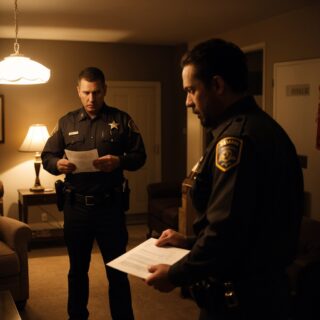 Introduction to Writ of Possession in Florida
Introduction to Writ of Possession in Florida
What is a Writ of Possession?
A Writ of Possession in Florida is a crucial legal instrument issued following a Final Judgment of Eviction. This document, mandated by Florida Statute 83.62, empowers the Sheriff to reclaim possession of the property for the landlord. The process ensures that the eviction is carried out lawfully and orderly, with specific steps to protect the rights of both parties involved.
Understanding the Final Judgment of Eviction
The journey to a Writ of Possession begins with a Final Judgment of Eviction. This judgment is rendered by a judge after a thorough review of the eviction case, confirming the landlord’s right to regain possession of their property. It is the culmination of the legal process where all parties have had the opportunity to present their case.
Steps Leading to Final Judgment
The eviction process includes several key steps:
- The landlord files an eviction lawsuit.
- The tenant is served with the lawsuit.
- A court hearing is held to determine the outcome.
If the judge rules in favor of the landlord, a Final Judgment of Eviction is entered, setting the stage for the issuance of the Writ of Possession.
Issuance of the Writ of Possession
Role of the Clerk of Court
Once the Final Judgment of Eviction is issued, the Clerk of Court prepares and enters the Writ of Possession. This document is a formal order directing the Sheriff to enforce the eviction. The Clerk’s role is administrative, ensuring that the legal process proceeds smoothly from the courtroom to the Sheriff’s office.
Execution by the Sheriff
Sheriff’s Responsibilities
The Sheriff’s office plays a pivotal role in executing the Writ of Possession. Upon receiving the writ, the Sheriff serves it to the tenant, officially notifying them of the eviction. The tenant is then given 24 hours to vacate the premises. This period allows the tenant to gather personal belongings and make necessary arrangements.
Landlord’s Rights and Responsibilities
Legal Protections for Landlords
For landlords, the Writ of Possession is a legal safeguard ensuring they regain control of their property. Once the writ is executed, landlords can remove any remaining personal property from the premises. Importantly, landlords are not liable for any loss, destruction, or damage to these items after removal, as stipulated by law.
Removing Personal Property
Handling Tenant’s Belongings
When executing the writ, landlords or their agents can place the tenant’s belongings at the property line. This action must be performed with care to avoid unnecessary damage, even though they are legally protected from liability. Proper documentation and adherence to legal protocols are advised to prevent disputes.
Legal Immunity for Damages
Protection for Landlords and Sheriffs
The statute provides immunity from liability for landlords and sheriffs regarding the tenant’s personal property. This legal protection is crucial, ensuring that the eviction process does not result in additional legal battles over property damage claims.
Hiring an Experienced Attorney
Importance of Legal Representation
Navigating the complexities of eviction laws requires expert legal representation. An experienced attorney can provide invaluable guidance, ensuring that owners’ rights are protected and landlords’ actions comply with legal standards. Seeking professional help can make a significant difference in the outcome of eviction disputes.
Contacting 954 Eviction Attorneys, PLLC
Services Offered by Our Firm
At 954 Eviction Attorneys, PLLC, we specialize in handling landlord-tenant disputes with expertise and compassion. Whether you are a landlord seeking to enforce a Writ of Possession or a property owner in need of eviction advice, our knowledgeable attorneys are here to assist you. Contact us today at 954.323.2529 to schedule a consultation and protect your legal rights. Understanding the intricacies of a Writ of Possession in Florida is essential for property owners and landlords. If you need to enforce a court order, do not navigate this process alone. Reach out to 954 Eviction Attorneys, PLLC, for expert legal advice and representation. Protect your rights and ensure a fair and just resolution to your eviction case.
FAQs
What is a Writ of Possession in Florida?
A Writ of Possession is a court order that authorizes the Sheriff to remove a tenant from a property after a Final Judgment of Eviction.
How long does a tenant have to vacate the property after being served with a Writ of Possession?
The tenant has 24 hours to vacate the property once the Writ of Possession is served by the Sheriff.
What happens to a tenant’s personal property after a Writ of Possession is executed?
The landlord can remove the tenant’s personal property to the property line, and neither the landlord nor the Sheriff is liable for any loss or damage to the property.
How can 954 Eviction Attorneys, PLLC help with eviction cases?
954 Eviction Attorneys, PLLC offers expert legal representation for both landlords and property owners in eviction cases. Our attorneys can help navigate the legal process, file necessary motions, and ensure your rights are protected. If you need assistance with a Writ of Possession, contact 954 Eviction Attorneys, PLLC today at 954.323.2529. Our experienced team is ready to help you navigate the complexities of eviction law and protect your rights.





You must be logged in to post a comment.